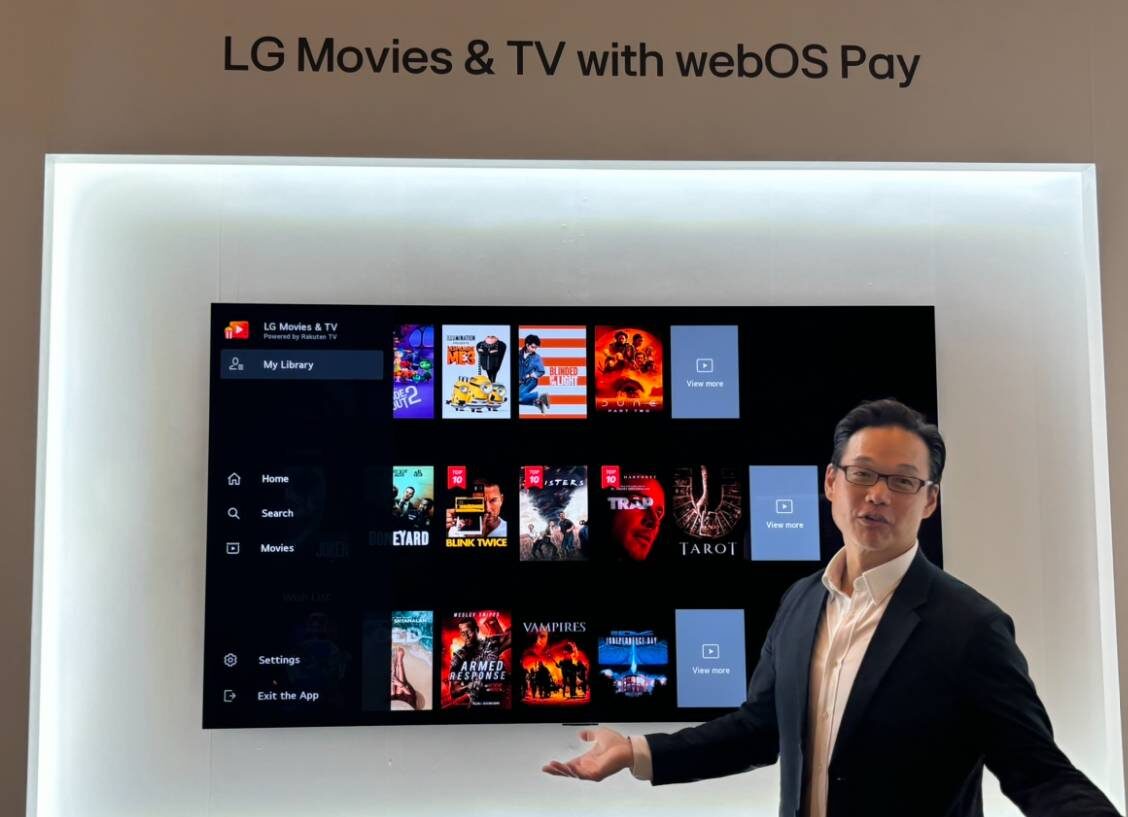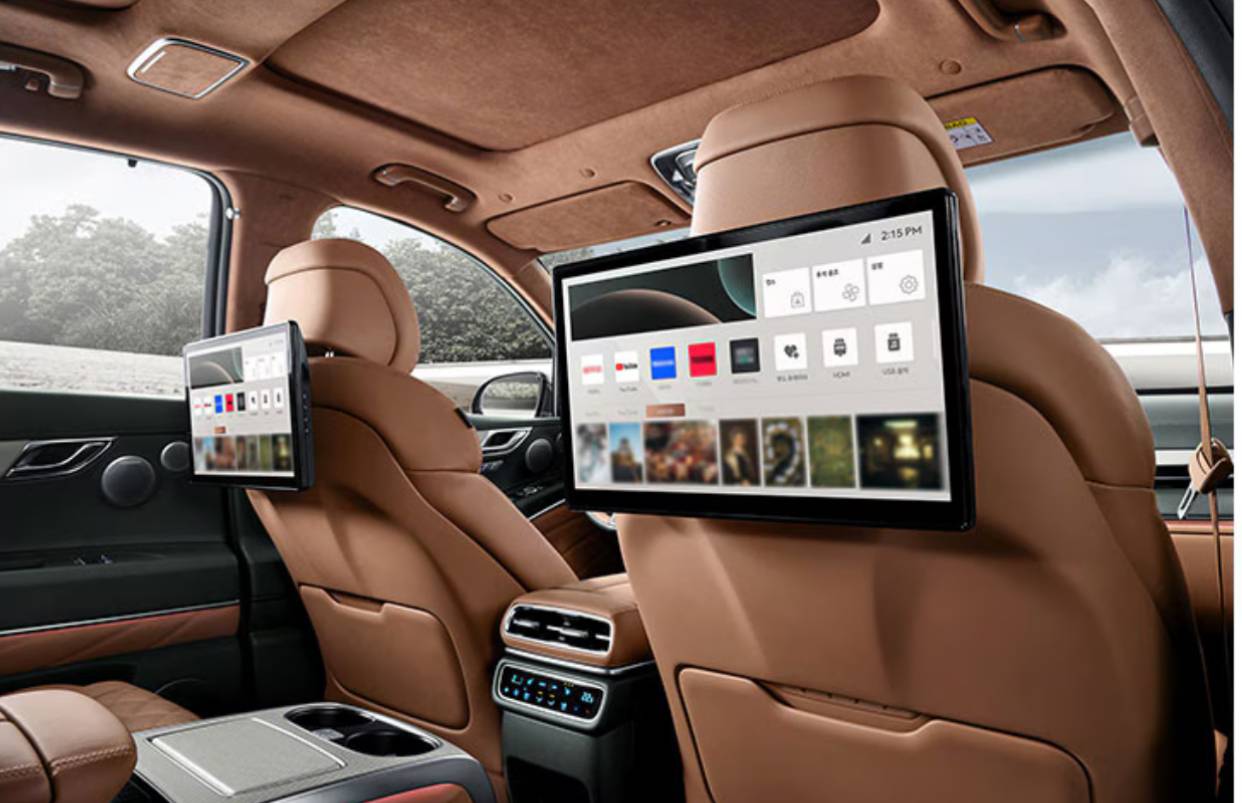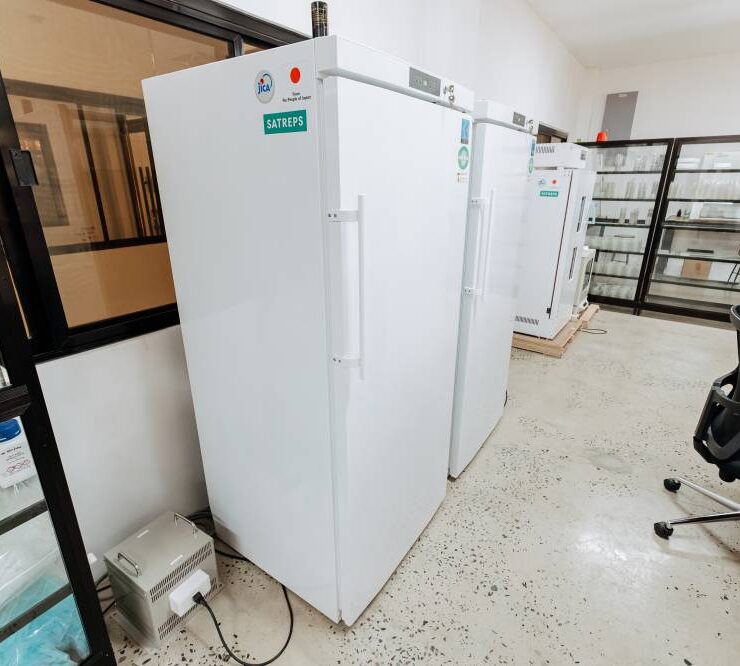LG out to turn ‘clicks’ into new cash cow

There may come a time when iconic Korean home appliance manufacturer LG Electronics will earn more from people clicking on the remote control, browsing through channels on smart TVs—not necessarily LG-made—than selling TVs around the world.
Every year, LG Electronics sells almost 100 million new TV and other appliance units. Across 180 countries, 500 to 700 million of such household devices are up and running.
What if these devices are connected and upgraded to provide platform services, similar to how Apple has gone beyond selling iPhone and iPad products, into building a thriving e-commerce ecosystem out of mobile users?
This is what happens when one transforms from a products firm to a platform company.
Bain & Co. defines a platform strategy as a “holistic approach that fosters interactions and transactions among diverse users, facilitating a dynamic ecosystem of value exchange.”
Aside from Apple, some of the world’s most valuable companies today are those that provide platform services, like Microsoft, Alphabet (Google), Amazon and Meta (Facebook).
“Whereas a traditional product follows a linear path from supplier to customer, a platform is multi-sided, with owners orchestrating interactions between two or more parties. The power of platforms lies in their network effects—as more producers and consumers join, marginal acquisition costs decline and the value for the platform and its participants increases exponentially. This, in turn, attracts more participants,” Bain & Co says.
In July 2023, LG unveiled a new vision to transform into a “smart life solution company” while building global annual revenues of 100 trillion Korean won (about $72 billion) by 2030.
As outlined by LG Electronics CEO William Cho, one of the growth engines is to pursue new platform-based service businesses, alongside the acceleration of business-to-business solutions and the foray into new business areas such as electric vehicle charging and digital health.
“LG will continue to pursue its bold vision to transform and leap forward as a smart life solution company that connects and expands customers’ various spaces and experiences, rather than resting on its current position as the best home appliance brand that provides quality products,” says Cho.
To date, the platform business is already five to six times more profitable than LG’s hardware business.
WebOS ecosystem
“Consumers’ TV usage patterns are changing. There’s a rapid transition from traditional linear models to digital streaming, and that is providing digital transformation of the advertising market,” says Matthew Durgin, vice president for content and services at LG Electronics North America.
In late September, LG Electronics invited journalists around the world to come to Seoul to know more about its new business model and latest innovations.
Artificial intelligence-powered webOS plays a pivotal role in LG’s business transformation. With a strategic investment of over $740 million, LG aims to significantly enhance the capabilities of webOS and related businesses.
To achieve this, LG is broadening the selection of content and services accessible on webOS, including those for entertainment, home fitness, education and gaming. It’s particularly pushing webOS to be an advanced gaming platform by adding new services and experience innovations. At present, it offers around 4,500 games across popular cloud gaming services such as GeForce NOW and Amazon Luna.
Furthermore, with the introduction of webOS Pay, LG has made it faster and more convenient for users to purchase content and services.
The webOS platform is LG’s ticket into the advertising business. This year, LG aims to achieve over $800 million in platform revenue, which will mark an average annual growth rate of more than 64 percent since 2018.
A significant contributor is LG Channels, which has over 3,800 channels. Launched in 2015, it was the first internet-based, free, ad-supported TV streaming service in Korea and since then rolled out to 29 countries.
Likewise launched is LG 1, which offers new channels with curated selection of premium entertainment.
LG redefines AI as “affectionate intelligence”, whose application allows webOS users to “enjoy easier control as well as personalized content and service recommendations” most suitable to their lifestyle. Currently, webOS has a long way to catch up with Google’s Android OS, but having its own captive base of LG device users is a good start.

Beyond LG brand
Unlike Apple, whose mobile operating system iOS is exclusive to its brands, webOS was opened to other TV makers in 2021. It has since been adopted by over 400 external brands, including Devant and Aiwa.
The company is now poised to expand the webOS ecosystem via an array of webOS-powered automotive infotainment solutions, digital signage, smart monitors, gaming monitors and projectors.
“For years, we strengthened our capabilities by incubating various Web OS based services such as gaming, commerce, music, fitness and education. After reviewing their potential, we have identified games, transactional video on demand and commerce as the major directions for expansion,” says Durbin.
“We will discover and provide games that can be played with family and friends in the connected TV environment. Along with our partners, we will create a webOS gaming ecosystem and gradually grow this value chain.”
Living space on wheels
As people spend more time not just in their living room but also on the road, LG seeks to expand its platform to include automobiles.
“What made LG successful in the living room, we want to bring that into the mobility space,” says Valentin Janiaut, Software Solutions task lead at LG Vehicle Component Solutions company.
Janiaut leads the vision for LG AlphaWare, LG’s solutions for software-defined vehicles.
“If you buy a car today, there is a very, very high chance that inside the car, there will be an LG product, whether it’s a display, whether it’s telematics. So if you have access to internet in your car, it’s very likely that it sends to LG or if you have a navigation system in your car, it’s also very likely an LG product,” Janiaut says.
Partnership approach is crucial for LG in this new business. It works with every original equipment manufacturer in the automotive industry, including homegrown brands Hyundai and Kia, as well as international brands like GM, Renault and Volkswagen.
WebOS now also powers LG’s automotive content platform that brings the home entertainment experience into the vehicle cabin.
LG started with connecting cars to the internet, years ago just a luxury feature. Today, Janiaut estimates that about 93 to 95 percent of cars are connected devices.
Another big area for LG is “infotainment”, the central display in the car that contains the navigation system, music, media, voice assistant and other features. LG has been a key supplier for the computer and the software to run such systems.
“Software used to be a very small part of the car. Today, software is about 10 percent of the value of a car. So when you buy your car, like $50,000, about $5,000 is spent on the software. And it is expected that by 2030, about 30 percent of the value of the car will be in the software. There is today more software, more Linux code in a car than there is in an airplane. And there is definitely much more than what there is on a phone or on any other IT product you can use,” Janiaut explains.
Earlier this year, the company launched LG AlphaWare, a suite of five sophisticated core solutions that work together to enhance in-vehicle experience:
- PlayWare, an entertainment platform
- MetaWare, an augmented and mixed-reality navigation system that transforms 2D map data into dynamic, immersive visuals
- VisionWare, an AI and advanced driver assistance system that corporates driver monitoring systems to prevent distractions and hazards that may occur when driving;
- BaseWare, a comprehensive collection of versatile software modules to enrich existing vehicle operating systems and assist in building new platforms; and,
- OpsWare, the central operations platform, designed to enhance collaboration among software developers, prioritizing robust cybersecurity management.
- Humanity has come a long way from just using cars to move from A to B, or beyond buying cars just as a status symbol.
“What the new generation is looking at is: I want a car that is kind of my personal space. I want a car where I feel comfortable, where I feel I can have my own bubble when I’m moving to work, when I’m maybe potentially taking a rest. People want a car where they can have lunch inside,” Janiaut says.
“We’ve done customer research, and so we came with this idea of what we call living space on wheels.”





















